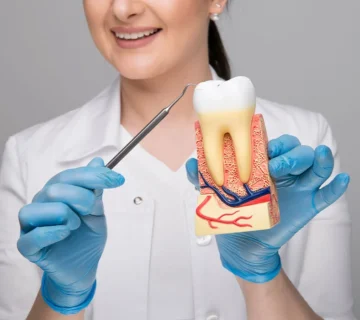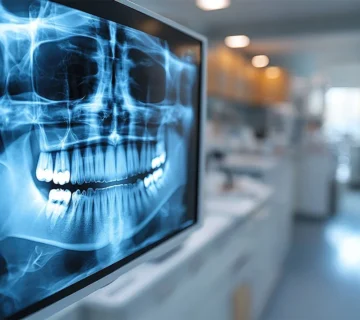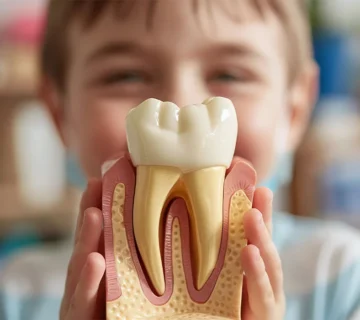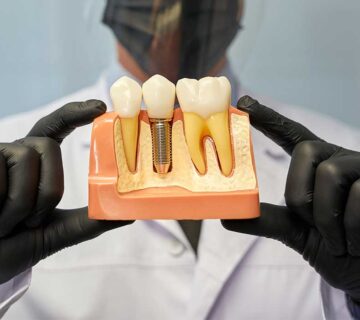Root canal treatment can also be performed on primary teeth. Although milk teeth are smaller and structurally more sensitive than permanent teeth, root canal treatment may be required in some cases.
Root canal treatment of primary teeth is usually performed when infection, decay or another serious problem occurs in the nerve or canal of the tooth.
When is Milk Tooth Root Canal Treatment Required?
Root canal treatment for primary teeth is usually performed in the following cases:
- Deep Caries: Decays that extend into the inner part of the tooth (pulp) may cause the tooth’s nerve to become infected. In this case, root canal treatment is required.
- Trauma or Tooth Fracture: Nerves and vessels may be damaged as a result of blows to the tooth, which increases the risk of infection. With root canal treatment, the infected area can be cleaned and the tooth can be saved.
- Pain and Infection: If there is severe pain, swelling or signs of infection in the tooth, it may indicate that the nerve tissue inside the tooth is damaged and root canal treatment may be required.
- Loss of Tooth at Old Age: In some children, milk teeth may be lost early, and to prevent this situation, root canal treatment can be performed to ensure that the tooth remains in the mouth for a longer time.
Differences of Primary Tooth Root Canal Treatment
Root canal treatment for primary teeth requires a slightly different approach than permanent teeth. Here are some differences:
- Smaller Root Canals: Primary teeth have smaller roots and their root canals may be more sensitive and narrow. Therefore, treatment should be carried out more carefully.
- Faster Treatment: Since milk teeth generally contain a less thick dentin layer, the treatment process may be faster than permanent teeth.
- Early Loss of Roots: Since the roots of milk teeth will dissolve over time, there is a risk of losing the roots of the tooth after treatment. Therefore, root canal treated primary teeth usually provide a short-term solution.
- Temporary Filling and Crown: Milk teeth that have undergone root canal treatment are usually treated with a temporary filling. Because milk teeth will fall out after a certain period of time, a permanent filling may often be unnecessary.
Things to Consider After Primary Tooth Root Canal Treatment
- Health of the Tooth: Milk teeth that have had root canal treatment must maintain a healthy mouth before the permanent teeth emerge. If pain, swelling or other complications occur after treatment, a dentist should be consulted.
- Follow-up of the Tooth: It is important to regularly check the tooth that has undergone root canal treatment. Over time, the infection may recur or other problems may occur in the tissues around the tooth.
- Tooth Loss: Early loss of milk teeth can affect the development of surrounding teeth. Root canal treatment can prevent premature loss of the tooth and enable the child to chew properly.
Is the Permanent Tooth Affected When Milk Tooth Root Canal Treatment is Performed?
A milk tooth that has had root canal treatment does not affect the permanent tooth. The roots of baby teeth melt over time to help the tooth fall out. The root canal treated area of the primary tooth does not affect the permanent tooth. However, if the milk tooth will remain in the mouth for a long time, regular follow-up and appropriate treatment may be required to prevent the tooth from damaging the jaw structure.
Root canal treatment is possible for primary teeth, and when necessary, this treatment can be very effective in saving the tooth, relieving pain and preventing infection. However, primary tooth root canal treatment usually offers a temporary solution because these teeth will fall out after a while. When deciding on treatment, your dentist will create the most appropriate treatment plan, taking into account the condition of the tooth and the child’s general oral health.



















